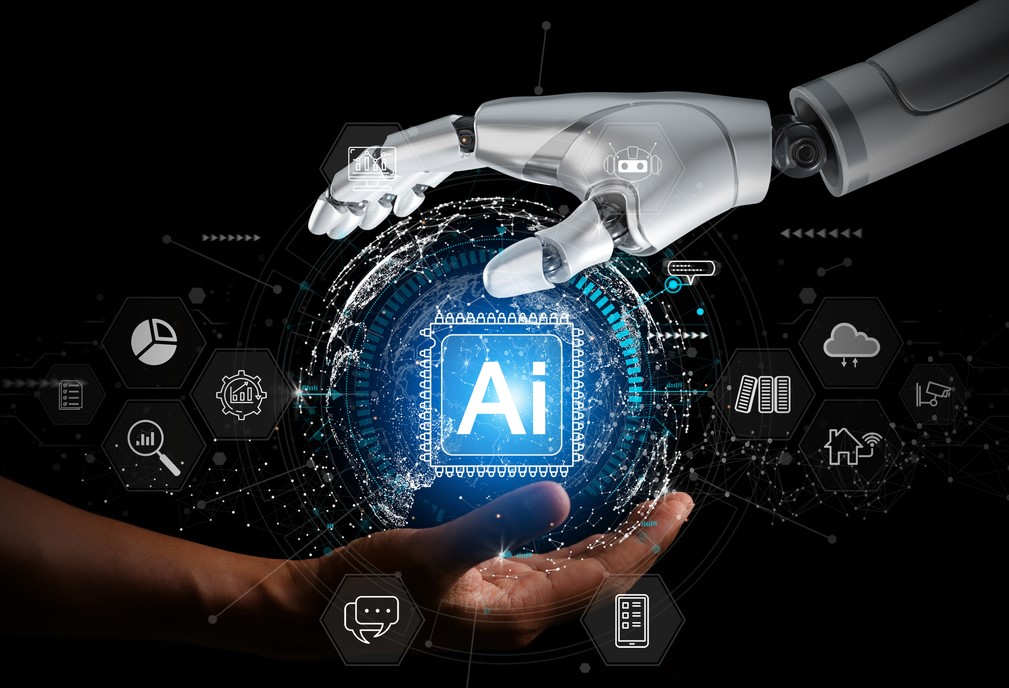AI Oracle: Which Trends Interest Business

Every day, modern technologies change the world by automating business processes in various industries. Specialists from HSE University have presented the extensive experience of the iFora team in implementing AI projects for the benefit of large companies and governments.
The AI and Digital Science Institute of the HSE Faculty of Computer Science held an open seminar titled ‘AI Projects Based on iFORA: A View of Business and Development.’ Konstantin Vishnevskiy, Director of the ISSEK Centre for Strategic Analysis and Big Data, spoke at the event. He noted that the global market for AI solutions for big data analytics is developing at a tremendous pace and is expected to triple by 2032. In 2020–2023, global investments in the development of generative AI reached $50 billion. Now, ten new generative AI models appear every month.
The iFORA big data mining system is a strategic analytics tool developed at the HSE Institute for Statistical Studies and Economics of Knowledge. The system has no analogues in Russia. It is based on the latest achievements in semantic analysis and machine learning and allows users to process and organise arrays of unstructured data in the shortest possible time, establish hidden connections, and identify specialised insights, trends, and atypical patterns in order to predict the future.
iFORA includes more than 850 million documents of various kinds—scientific publications, patents, market analytics, and much more—and operates in Russian, English, and Chinese. Currently, it uses more than 20 different machine learning models (from assessing the reputational footprint of a technology or product to summarising texts).

Konstantin Vishnevskiy
‘There can be a very wide variety of results. In fact, iFORA is now a kind of ‘construction set.’ Typically, there are a lot of requests for customised analytics—identifying trends, growth points, and promising technologies, analysing markets, identifying competence centres, and forming project teams. We can combine different data sources and compare statistical data, scientific and media reports, and analyse the digital footprint. Recently, we have seen an increasing demand for ready-made products and services—on-prem solutions, web access by subscription—and we are expanding our range of capabilities,’ explained Konstantin Vishnevskiy.
With the help of iFORA, we can also adjust educational programmes at universities in order to teach students what will be in demand in the future.
‘Sometimes the requests can be quite extravagant, for example, to identify factors that affect the happiness, mental and physical state of residents of major cities. Nevertheless, such requests can be satisfied,’ he said.
Most often, businesses receive requests about technologies and their prospects, he noted.

Dmitry Zagorulkin
Dmitry Zagorulkin, Deputy Director of the ISSEK Centre for Strategic Analysis and Big Data, spoke about data management and shared the unit’s plans. The researchers plan to develop systems with multi-agent architecture based on LLM, improve methods and strategies for organising reasoning models, improve response generation by taking into account different modalities (including document structures), and increase recognition of the context of user queries.
The iFORA big data mining system has repeatedly received recognition both in Russia and worldwide, Konstantin Vishnevskiy added. For example, the tool was highlighted in a report on the role of technological forecasting and technology assessment in shaping sustainable development policies prepared by the UN Secretary-General. The report was prepared for the 28th Session of the Commission on Science and Technology for Development, which was held on April 7–11, 2025, in Geneva. The report featured a project implemented with the help of iFORA for the South African government to create a development plan until 2050. The forecast was developed using the foresight methodology; it formed the basis of the development programme in science and technology in the country. HSE’s product was recognised as the most advanced in its class in Russia, said Konstantin Vishnevskiy.
See also:
Clouds Are Closer Than They Appear: Results of iFORA Foresight Session
Management intellectualisation, synergy with AI, and the transition to microclouds are expected to be the main trends in the digital economy over the next decade. Experts in cloud technologies gathered at HSE University for a foresight session to discuss these trends and their evolution up to 2040. They explored how process intellectualisation would develop, as well as ideas for storing data in space to minimise environmental impact.
What Will 2024 Be Like? The Forecast by iFORA
RBC journalists decided to ask Russian artificial intelligence systems what 2024 will be like. Four leading Russian companies and HSE University took part in the project. The questions were answered by the iFORA big data intelligent analysis system developed by HSE ISSEK.
HSE University Receives Government Grant to Create AI Research Centre
A competition of research centres looking to receive grants through the Artificial Intelligence federal project has concluded, and HSE University is among the winners. Winning centres will focus on developing new AI technologies that expand its application, overcoming existing limitations for solving applied problems and optimizing AI models.


